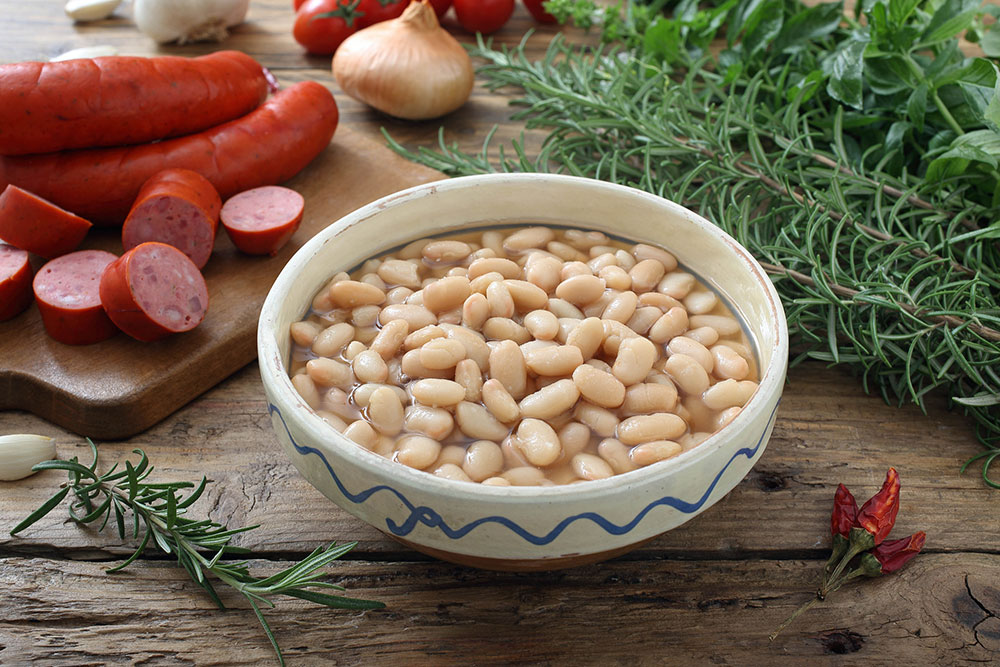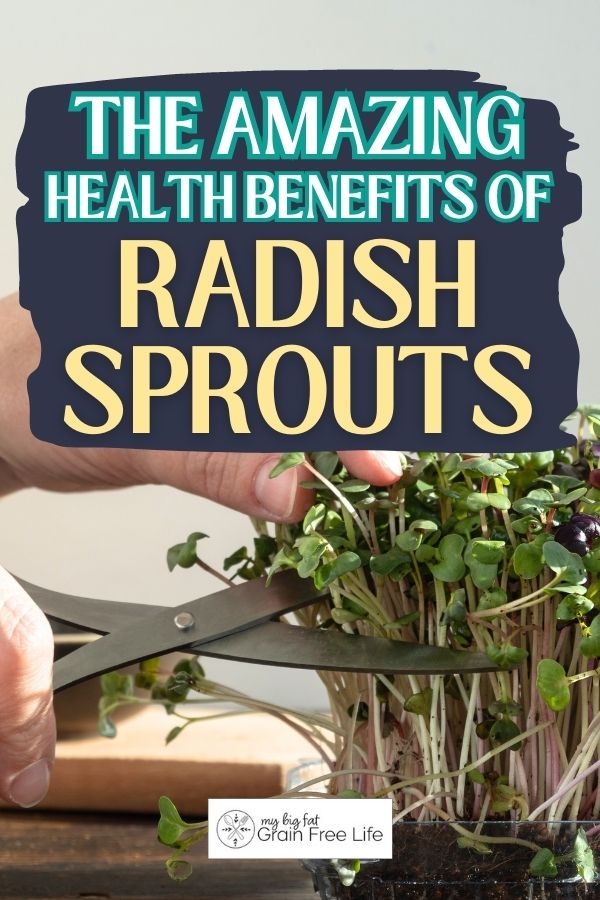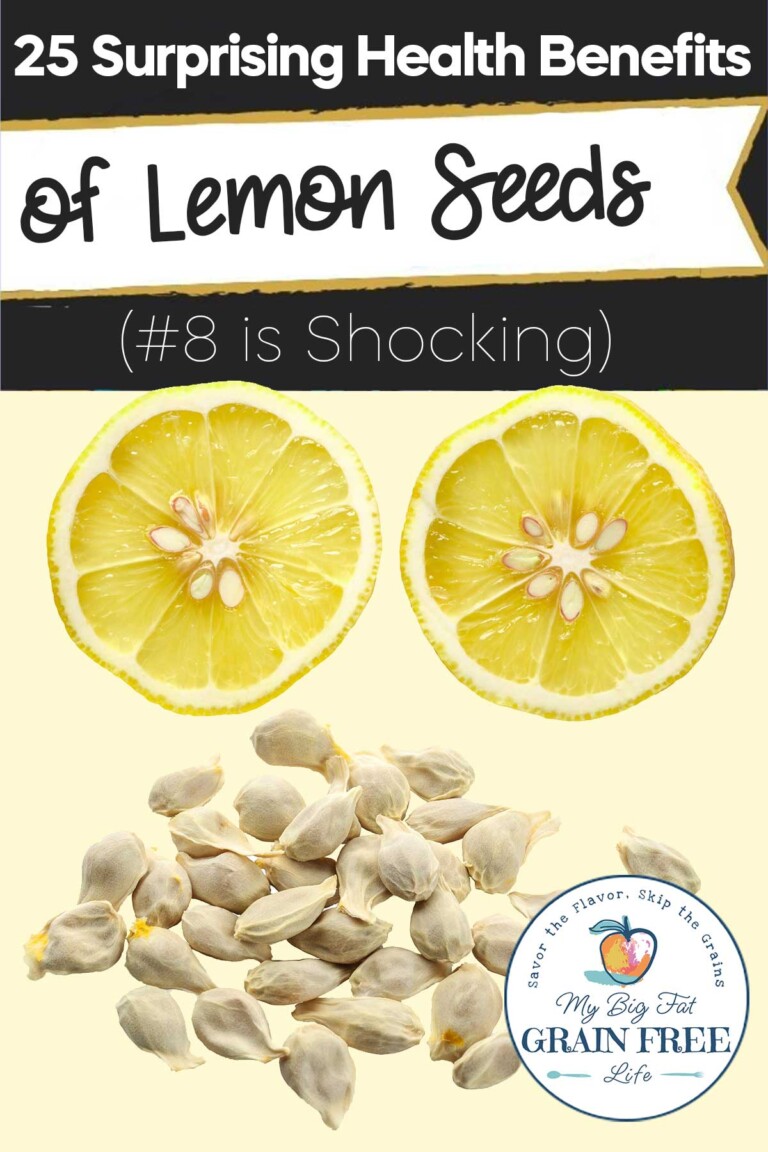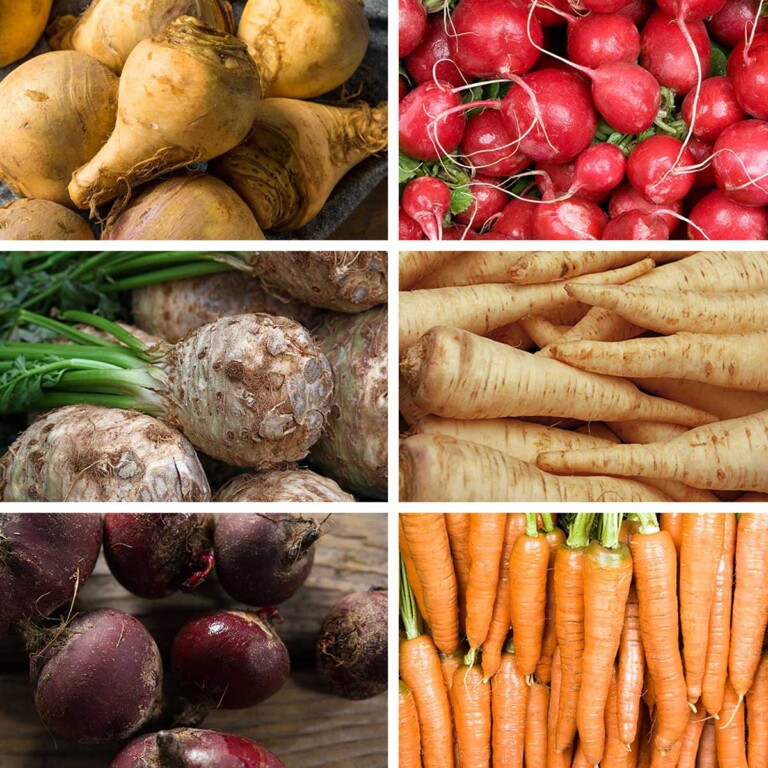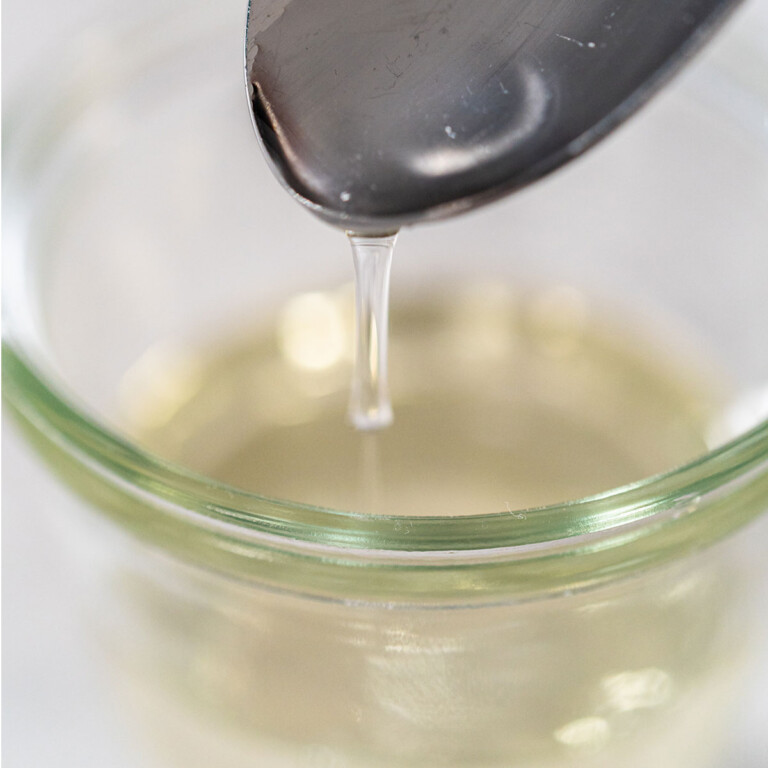30 Amazing Health Benefits of White Beans (Nutrition Facts)
This post may contain affiliate links. If you make purchase after clicking a link, I may receive a commission at no extra cost to you.
Last Updated on September 26, 2023
With so many types of beans, how much do you know about white beans? There are many health benefits of white beans, be it cannellini, navy beans, great northern beans, or limas. Let’s look at some nutrition facts of white beans and explore the many ways they can benefit your health.
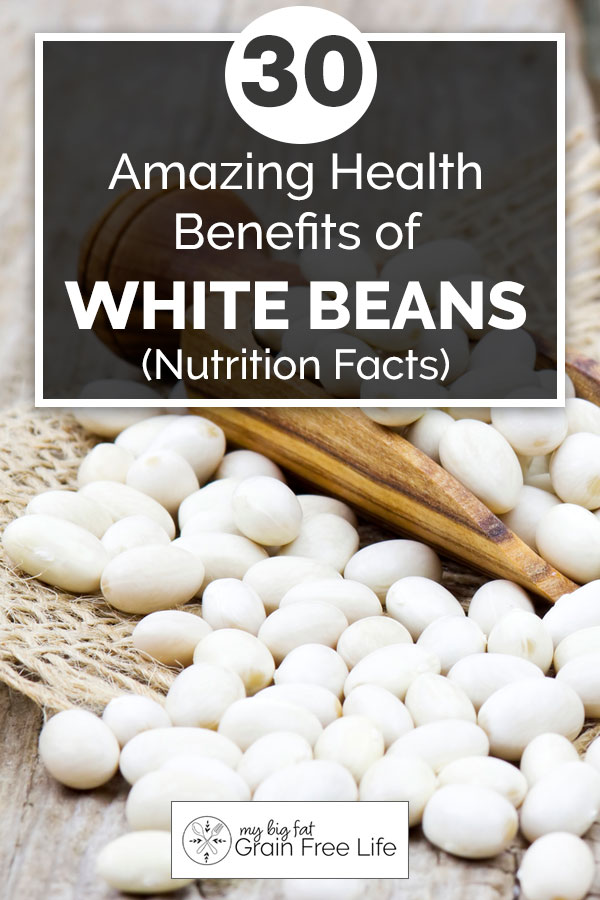
White Beans
White beans are a popular legume variety rich in fiber and protein. They’re light cream in color and are a smaller bean with a traditional kidney shape. These beans have a delicate, mildly sweet flavor that blends seamlessly into a variety of dishes.
Their texture is soft yet firm, creating a satisfying bite. Notably, they absorb surrounding flavors without losing their own, making them a versatile ingredient in various recipes.
Health Benefits of White Beans
There are many types of beans and legumes and all of them have health benefits. Beans in general are a staple in plant-based diets, due to their high protein content. These little superfoods really pack a punch when it comes to nutrition!
Today, we will explore the overall health benefits of white beans.
Types of White Beans
In addition to various types of beans, there are several different white beans. Let’s take a look at they different types of white beans.
Navy Beans
Also called pea beans, navy beans are small, oval-shaped, and quick-cooking. These small yet mighty legumes, offer a remarkable blend of taste, texture, and nutrition that’s hard to beat. With their delicate, mild flavor, they are a great addition to any dish. Texture-wise, these beans provide a smooth, creamy consistency when cooked, adding a satisfying heartiness to your meals.
I use navy beans for my delicious white bean hummus (trust me, it’s so good!).
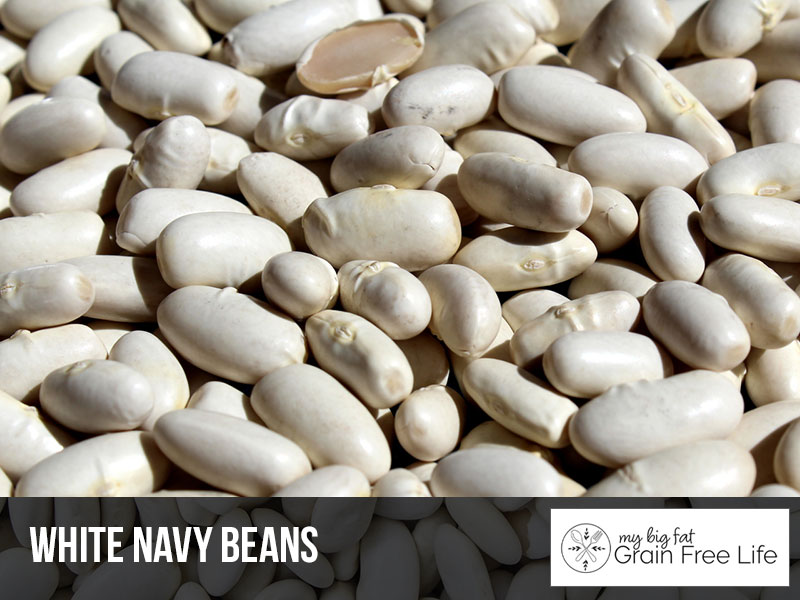
Great Northern Beans
These beans are small, cream-colored, and renowned for their mild, nutty flavor and firm texture. Great northern beans complement numerous ingredients without overwhelming them. When cooked, they maintain a smooth, buttery texture.

Cannellini Beans
A staple in Italian cuisine, cannellini beans are hailed for their unique taste and texture, alongside numerous health benefits. They hold a mild, nutty flavor, with a slight hint of earthiness that complements many dishes. Their texture, when cooked, is velvety and smooth, providing a satisfying mouthfeel.
Cannellini beans are the largest white beans, often used in Italian dishes like Minestrone.
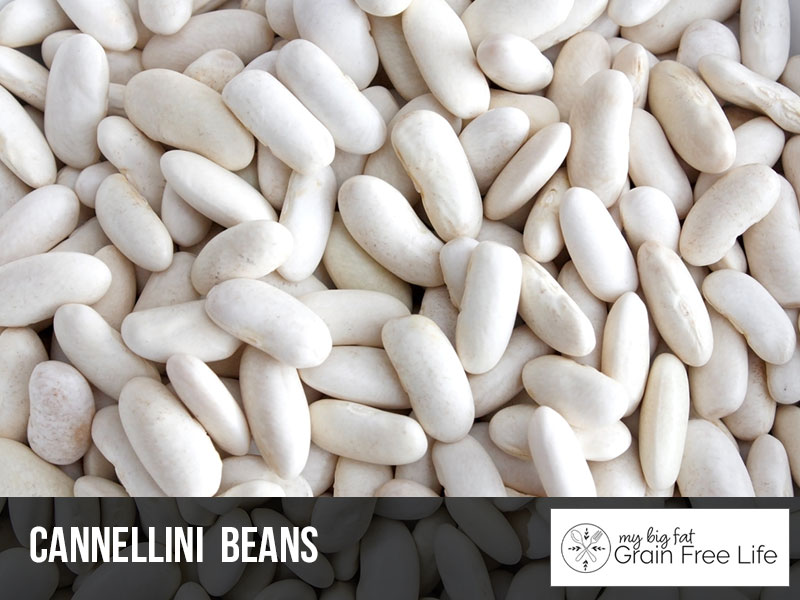
Baby Lima Beans
Baby lima beans, often known as butter beans, offer a slightly sweet, buttery flavor that blends well with many dishes. Their smooth, creamy texture can add richness to soups, stews and salads while providing a pleasing contrast to crunchy vegetables or grains.
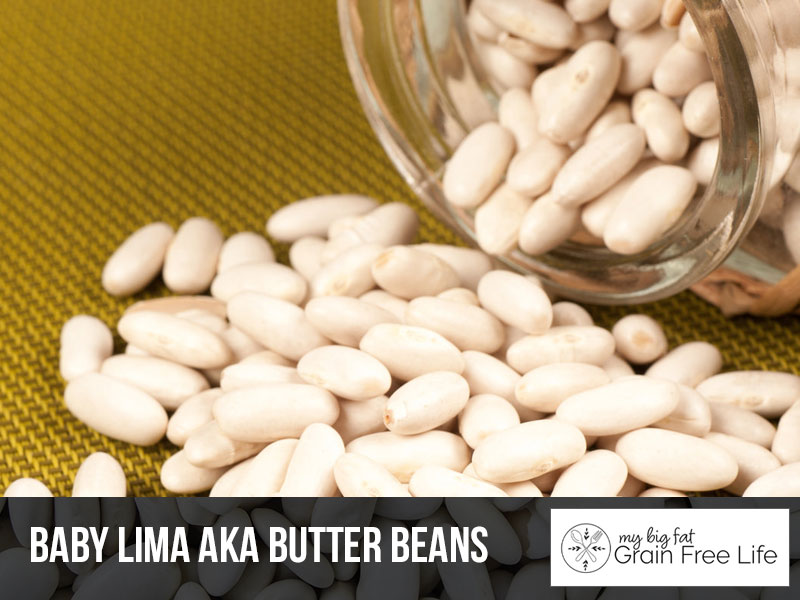
Large Lima Beans
Larger and flatter than their baby counterparts, large lima beans are ideal in soups and salads. They have a subtle, slightly sweet, and buttery flavor that is uniquely their own.
Lima beans exhibit a creamy and starchy texture, similar to potatoes. When cooked thoroughly, they offer a satisfying mouthfeel that is both tender and substantial, providing a hearty element to any meal.
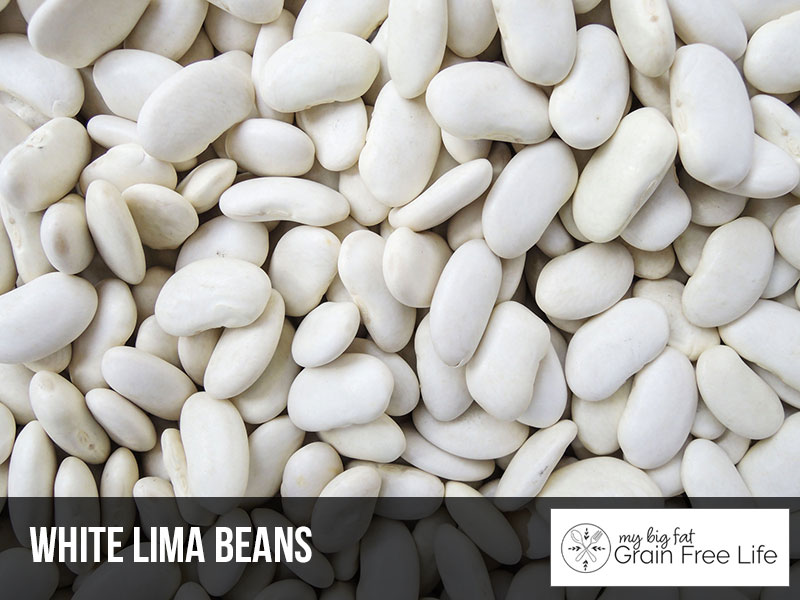
White Kidney Beans
A variant of the kidney bean, this type has a creamy texture and is often used in soups, stews, and rice dishes. White kidney beans have a smooth, creamy texture and subtle earthy flavor with a slight hint of nuttiness.
Their relatively neutral taste allows them to absorb the flavors of other ingredients in a dish. Their unique, buttery texture is another key distinguishing feature of these beans. After being cooked, they offer a firm but creamy bite, adding a satisfying element to your meals. This characteristic texture also lends itself well to being mashed or pureed while maintaining a rich, hearty feel in the dish.
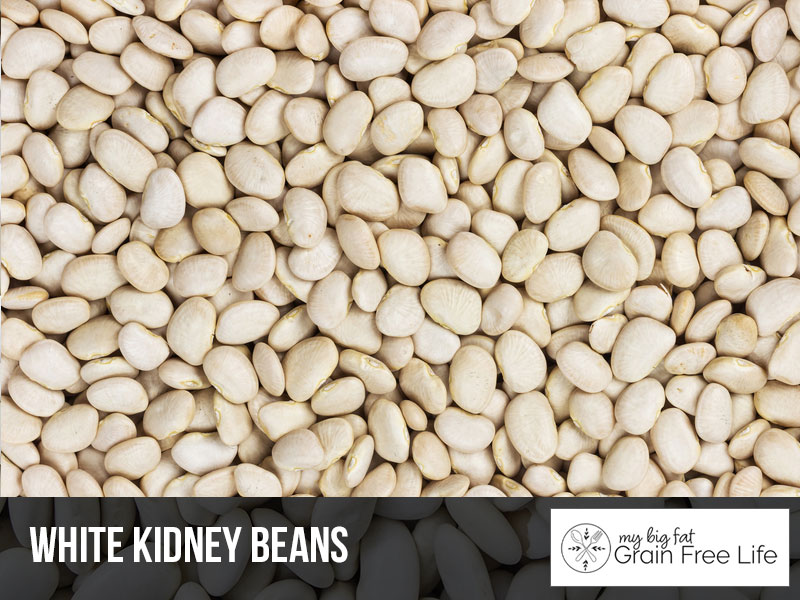
Nutrients in White Beans
White beans have a lot of vitamins and minerals. Take a look below at the nutrients in just one cup of white beans, according to the U.S. Department of Agriculture.
Vitamins and Minerals in White Beans
| Protein | 16.7 g |
| Carbs | 43.1 g |
| Fiber | 10.9 g |
| Calcium | 155 mg |
| Iron | 6.38 mg |
| Magnesium | 109 mg |
| Phosphorus | 194 mg |
| Potassium | 964 mg |
| Sodium | 409 mg |
| Zinc | 2.37 mg |
| Copper | .494 mg |
| Selenium | 2.22µg |
| Thiamin | 0.192 mg |
| Riboflavin | 0.076 mg |
| Niacin | 0.229 mg |
| Vitamin B-6 | 0.152 mg |
| Folate, total | 133 µg |
| Choline, total | 60.3 mg |
| Vitamin E | 3.57 mg |
| Vitamin K | 19.2 µg |
Carbs in White Beans
Each cup (approximately 180 grams) of boiled white beans contains around 45 grams of carbohydrates.
Most of these carbs come in the form of starches, which are complex carbohydrates. These complex carbohydrates are metabolized at a slower rate, providing sustained energy over a longer period, preventing spikes in blood sugar levels, and keeping you feeling satiated longer.
Dietary Fiber in White Beans
White beans are high in dietary fiber, a type of carbohydrate that isn’t wholly digested by our body.
A cup of white beans provides around 11.3 grams of fiber, which accounts for about 45% of the recommended daily intake for women, and 30% for men. This fiber aids in digestion, reduces the risk of cardiovascular disease, and helps maintain a healthy weight.
Why Dietary Fiber is Important
Dietary fiber, often referred to as roughage, has a significant impact on digestion and overall health. It is derived from plant-based foods and cannot be broken down by our body, which means it passes through the digestive system relatively intact. This characteristic brings about a slew of health advantages.
Firstly, dietary fiber adds bulk to your diet and makes you feel full faster, assisting in weight management by preventing overeating.
Secondly, it promotes healthy bowel movements and assists in maintaining bowel health by reducing the risk of developing hemorrhoids and small pouches in your colon (diverticular disease).
Furthermore, dietary fibre helps control blood sugar levels by slowing the absorption of sugar, reducing the risk of type-2 diabetes. It also aids in achieving a healthy heart by lowering cholesterol levels, particularly levels of low-density lipoprotein or ‘bad cholesterol’.
Fat in White Beans
The fat contained in white beans is what we call healthy fat. This healthy fat in white beans, albeit present in small quantities, is predominantly unsaturated fat, which has been associated with numerous health benefits.
Unlike bad fats, the unsaturated fat in white beans does not raise cholesterol levels. Instead, it helps to promote healthy cholesterol balance, safeguarding the heart and the body’s overall cardiovascular health.
Furthermore, unsaturated fats are instrumental in absorbing vitamins. Vitamins A, D, E, and K are not water-soluble, meaning they need fat to be optimally absorbed and stored in the body.
Protein in White Beans
White beans are an excellent source of protein, a macronutrient essential for various bodily functions, including tissue repair, muscle building and immune function.
A one-cup serving of cooked white beans provides around 15.3 grams of protein content. This accounts for approximately 30% of the daily protein requirement for women and 25% for men, making white beans a substantial contributor to fulfilling our daily protein needs.

Health Benefits of White Beans
The health benefits of white beans are significant! Not only are they rich in dietary fiber and full of protein, they can help reduce cholesterol, maintain bone health, promote healthy skin, and even boost metabolism.
1. Rich in Fiber
White beans are high in dietary fiber which helps maintain a healthy digestive system by promoting regular bowel movements and reducing constipation.
2. Protein Powerhouse
They are an excellent source of plant-based protein, especially beneficial for vegetarians and vegans.
3. Heart Health
The fiber, potassium, and B vitamins in white beans all contribute to heart health by reducing LDL cholesterol levels. These nutrients also help to lower blood pressure.
4. Bone Health
Rich in calcium and magnesium, white beans help in maintaining healthy bones.
5. Weight Management
The excellent source of fiber in white beans can leave you feeling full longer, aiding in weight management.
6. Blood Sugar Regulation
The fiber slows down the absorption of sugars into the bloodstream, helping to regulate blood glucose levels and prevent blood sugar spikes.
7. Prevent Birth Defects
White beans are rich in folate, a key nutrient that helps prevent neural tube defects in unborn babies.
8. Rich in Antioxidants
These beans contain several antioxidants that help fight against harmful free radicals in the body.
9. Enhances Energy Levels
Rich in complex carbohydrates, white beans provide a steady supply of energy without causing spikes in blood sugar levels.
10. Anemia Prevention
White beans are an excellent source of iron, which is essential to prevent anemia.
11. Great for Eye Health
White beans contain certain essential nutrients like Vitamins A and Zinc that help maintain good eye health.
12. Reproductive Health
The folate in white beans supports fertility and aids in a healthy pregnancy.
13. Skin Health
Antioxidants in white beans can help protect the skin from aging and environmental damage.
14. Boosts Immunity
Being loaded with various vitamins and minerals, white beans can aid in boosting the immune system.
15. Anti-inflammatory Properties
Some compounds present in white beans, like flavonoids, have anti-inflammatory properties.

16. Promotes Mental Health
Folate and B vitamins in white beans can enhance brain function and mental health.
17. Stress Reduction
The magnesium in white beans helps to reduce stress and anxiety.
18. Anti-cancer Properties
Certain antioxidants in white beans may help in reducing the risk of certain types of cancer.
19. Lowers Risk of Cardiovascular Diseases
The high fiber and low fat content in white beans contribute to a lower risk of heart diseases.
20. Improves Sleep
White beans contain nutrients like magnesium that contribute to better sleep.
21. Aids in Detoxification
Certain compounds in white beans help in detoxifying the body.
22. Supports Liver Function
The fiber and antioxidants in white beans aid in maintaining a healthy liver.
23. Rich in Potassium
Potassium in white beans helps balance fluids in the body and supports nerve function.
24. Encourages Hair Health
The proteins and nutrients found in white beans promote strong, healthy hair.
25. Maintains Healthy Teeth and Gums
Calcium in white beans is essential for good dental health.
26. Promotes Muscle Growth
Being high in protein, white beans are an ideal food for muscle growth and recovery.
27. Fights Fatigue
Iron and B vitamins in white beans can help combat fatigue and maintain high energy levels throughout the day.
28. Improves Digestive Health
The insuluble fiber in white beans promotes a healthy gut by nourishing good bacteria.
29. Reduces Risk of Stroke
The potassium and other nutrients found in white beans can lower the risk of stroke.
30. Boosts Metabolism
A rich array of B vitamins in white beans helps to boost metabolism and optimize body functions.

How to Store Dried Beans
Storing dried beans correctly is essential to maintain their freshness, quality, and nutritional value. Here’s how you store dried beans:
- Cool and Dry Location: Store your dried beans in a cool, dry location that’s away from direct sunlight. The kitchen pantry is a perfect spot.
- Airtight Containers: Utilize airtight containers or resealable bags to keep moisture, insects, and other contaminants away. Glass jars with sealing lids work great too.
- Label & Date: Don’t forget to label each container with the type of beans and the date of storage. This will help you monitor the beans’ freshness and consume them within their optimal period.
- Avoid Mixing: Try not to mix new and old beans in the same container as it could affect the cooking time due to varying degrees of freshness.
- Shelf Life: Generally, properly stored dried beans can last up to a year, but for the highest quality, it’s recommended to use them within six months of purchasing.
Remember, if your dried beans develop an odd odor, color, or texture, this is a sign that they might have spoiled and it’s better to discard them.
How to Prepare White Beans
There are some steps to preparing dried white beans for cooking.
Soaking White Beans
First, rinse your dry beans under cold water to remove any dirt or debris. Then, soak them overnight (or at least 8 hours) in a large bowl of water. This helps soften the beans and reduce cooking time. It also helps to remove some lectins and makes them easier for your body to digest.
Cooking White Beans
There are various ways you can cook white beans. Here are three of the most common ways. You can use our 5-ingredient navy beans recipe to make some delicious beans.
1. Stove-top Method: Begin by soaking your white beans overnight. Rinse well and transfer them to a pot. Pour enough water to cover the beans by 2 inches. Bring the water to a boil then reduce heat, cover and let it simmer, stirring occasionally. They should be tender enough to bite into after 1-2 hours.
2. Soup Method: This is a recipe that allows the rich flavors of the beans to shine. Start by sautéing onions, garlic, and carrots in avocado oil or olive oil. Add soaked and rinsed white beans, vegetable broth, and your choice of herbs. Simmer until beans are tender. For a creamy soup, blend some of the soup and add it back to the pot.
3. Instant Pot Method: If you’re pressed for time, this method is for you. Add soaked and rinsed beans to your Instant Pot along with enough water or chicken stock to cover them. Season however you’d like and cook on high pressure for 15-25 minutes (depending on how you like your beans), followed by natural pressure release.
These are just the basics of cooking white beans. You can add your own flair by incorporating spices, vegetables or even protein to the recipes.
Recommended: Kale and White Bean Soup Recipe
Popular Spice Blend For White Beans:
- 1 tablespoons cumin seeds
- 1 tablespoons coriander seeds (lots of health benefits of coriander seeds)
- 1/2 tablespoon paprika
- 1/2 tablespoon granulated garlic
- 1/2 teaspoon ground turmeric
- 1/2 teaspoon ground ginger
- 1/4 teaspoon cinnamon
- 1/4 teaspoon black pepper
- 1/4 teaspoon cayenne pepper (adjust according to desired spiciness)
- Salt to taste
What Goes Well with White Beans?
- Carolina Pulled Pork – Shredded pork and beans taste so well together!
- Roasted Chicken – White beans make a great side to a delicious roasted chicken recipe.
- Grilled Paleo Salmon – While salmon brings a unique, rich flavor, it also provides your body with necessary oils and fatty acids. Pairing it with white beans adds a heartiness to the dish, making it a satisfying and healthy option.
- Pan-Seared Steak: A well-cooked steak is always a treat, and pairing it with white beans adds a lovely contrast of flavors and textures. The beans’ mild flavor complements the rich, savory taste of the steak.
White Beans Frequently Asked Questions
Still have some questions about white beans? Well, we’ve got the answers!
Are White Beans Good for You?
High in protein and fiber, white beans are a tasty and versatile source of plant-based nutrition. White beans also provide a significant amount of iron and calcium, essential nutrients for bone health and energy.
These legumes contain a myriad of essential vitamins and minerals such as magnesium, manganese, copper, and vitamin B6. The fiber in white beans can help regulate your blood sugar levels, promote digestive health, and aid in weight loss by making you feel full for longer periods.
Moreover, white beans are rich in antioxidants that safeguard your body against damage by harmful molecules known as free radicals, thereby potentially reducing the risk of chronic diseases like heart disease and cancer.
Are White Beans as Healthy as Other Beans?
Despite their color differences, most beans have a similar nutrient profile. Packed with essential nutrients such as protein, fiber, iron, and potassium, white beans contribute to heart health, improved digestion, and blood sugar regulation.
Which White Bean is Healthiest?
The healthiest white bean is the navy bean. It contains high levels of fiber and protein, providing a substantial energy source and promoting digestive health. Additionally, it’s a great source for essential nutrients such as folate, iron, and magnesium.
Are White Beans a Superfood?
White beans are considered a superfood due to their high nutrient density. They are a rich source of fiber, protein, vitamins, and minerals, making them a beneficial addition to any meal.
Are Canned White Beans Healthy?
Canned white beans can be as healthy as dried beans. Both types have similar nutritional values, including fiber, protein, and various vitamins and minerals. The primary difference lies in the sodium content.
Canned beans tend to have a higher sodium content due to the preservatives used. However, you can easily mitigate this issue by rinsing the beans before use, which can reduce the sodium content by up to 40%.
Which is Healthier: Red or White Beans?
When it comes to nutritional value, both red and white beans have numerous health benefits. They are rich in protein, fiber, iron, and various essential vitamins and minerals.
Red beans, often known as kidney beans, have a slightly higher protein and fiber content. They are also rich in antioxidants due to their darker color, which makes them excellent for fighting inflammation and protecting against chronic diseases.
White beans, on the other hand, are particularly high in magnesium, a mineral that supports heart health and promotes better blood pressure control. Additionally, they have a lower glycemic index, making them a smarter choice for individuals managing diabetes.
Is It Okay to Eat Beans Every Day?
Yes, it is absolutely okay to eat beans every day. Beans are rich in protein, fiber, vitamins, and minerals that contribute to a well-rounded, healthy diet.
Eating a variety of beans like chickpeas, lentils, white beans, black beans, and kidney beans also aids in diversifying your nutrient intake. However, due to their high fiber content, a sudden increase in bean consumption may cause bloating or gas- it is recommended to gradually incorporate them into your diet.
Are White Beans Prebiotic?
White beans are indeed prebiotic. Prebiotics are types of dietary fiber that feed the friendly bacteria in your gut. This helps the gut bacteria produce nutrients for your colon cells and leads to a healthier digestive system.
Are White Beans Good for Gut Health?
White beans are rich in dietary fiber, particularly inulin, which is a type of soluble fiber that promotes the growth and activity of beneficial gut bacteria.
Are White Beans Anti-inflammatory?
White beans are indeed anti-inflammatory. They are rich in antioxidants and anti-inflammatory compounds which can help reduce inflammation in the body. White beans contain a variety of nutrients including fiber, protein, and minerals that all contribute to their anti-inflammatory properties.
They are particularly high in a type of fiber called resistant starch which is known for its potent anti-inflammatory effects. Additionally, the protein and minerals in white beans can help to strengthen the immune system and reduce the risk of chronic diseases associated with inflammation.
Final Summary
The consumption of white beans comes with many health benefits, as we have discussed in this article. It’s a good idea to add beans to a balanced diet. If you are new to eating beans, it’s best to start off slow and gradually increase your intake to avoid bloating and gas.
Sources
- https://fdc.nal.usda.gov/fdc-app.html#/food-details/175203/nutrients
- https://pharmeasy.in/blog/exploring-the-health-benefits-of-cannellini-beans-a-comprehensive-review/
- https://www.healthifyme.com/blog/northern-beans/
- https://www.verywellfit.com/northern-bean-nutrition-facts-and-health-benefits-5072085
- https://www.agrifoodnhealth.ca/scientific-facts-on-white-bean-nutrition-and-health-benefits/


